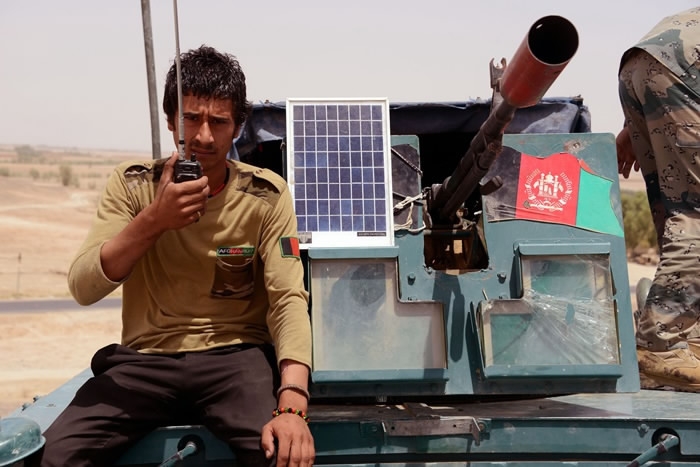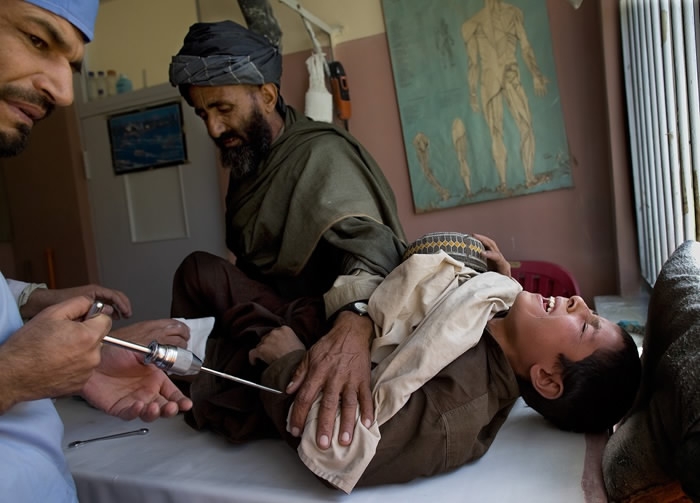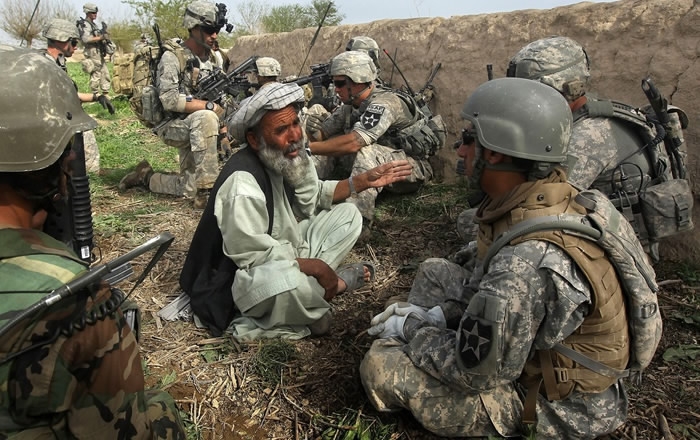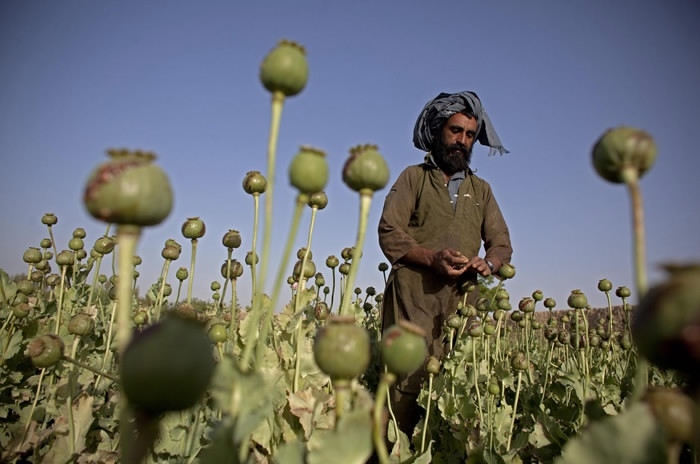Taliban insurgents were busy in Kandahar again over the weekend, local police said.
"The Taliban abducted 70 people from their house in a village along the Kandahar-Tarinkot highway, Friday. They killed seven of them today," Abdul Raziq, the head of Kandahar provincial police told AFP, adding that around 30 villagers had been released, but at least 30 others were still missing.
This is just the latest twist in the seemingly endless turbulence in the region around Kandahar, the second largest city in Afghanistan, the capital city of Kandahar Province and the spiritual birthplace of the Taliban.
Constant violence
NATO and Afghan government forces have never succeeded in stabilizing Kandahar since the Taliban was ousted from power during the US-led invasion in December 2001, as insurgents launch suicide attacks and ambushes, and plant roadside bombs and land mines.
The Taliban has targeted the Kandahar International Airport, NATO forces, security personnel and officials of the Afghan government and even civilians in its numerous attacks in Kandahar Province during the past 15 years, attempting to highlight its presence and recapture its former headquarters through violence and killing.
In response, NATO forces expanded the Afghan police to stop the Taliban comeback in Kandahar, but their efforts failed to contain the insurgents' offensives.

An Afghan soldier sits on a military vehicle after an operation against the Taliban in Kandahar, Afghanistan, August 17, 2016. /VCG Photo
By 2017, the Taliban was believed to control up to a third of the territory and population of Afghanistan. As of March 26, the group claimed it controlled four of Kandahar's 18 districts and heavily contested five more.
A number of prominent figures have been killed in Taliban attacks in Kandahar and its neighboring areas, including Ahmed Wali Karzai, half-brother of Afghan President Hamid Karzai; Ghulam Haider Hamidi, mayor of Kandahar; two deputy mayors; and many tribal elders and Islamic clerics.
As recent as last Thursday, 16 security personnel were killed when Taliban militants attacked security checkpoints in Kandahar Province.

Hazrat Ali, 12, lies in pain as a metal splint is removed at a hospital in Kandahar, Afghanistan, October 13, 2009, after being injured by a bomb near the Pakistan border. /VCG Photo
Taliban's hometown
As the spiritual birthplace of the Taliban and the most important city in southern Afghanistan, Kandahar, also known as Qandahar, has been a strategic key for both the Afghan government and the insurgents.
With a population of half a million or so, the city is mainly inhabited by Pashtuns, the major ethnic group of the country.
The city of Kandahar was founded by Alexander the Great around 330 B.C. It was conquered by Arabs in the 7th century and then occupied by Mongol, Mughal and Persian invaders.
In 1747, Kandahar was made the capital of the newly independent Afghan Empire, before the capital was transferred to Kabul in 1776.

Afghan soldiers question a farmer after a firefight with Taliban insurgents at Howz-e-Madad in Kandahar Province, Afghanistan, March 14, 2010. /VCG Photo
After the British invasion in the 19th century and the Soviet occupation from 1979 to 1989, Kandahar fell to local mujahideen commander Gul Agha Sherzai in 1992, following the collapse of Mohammad Najibullah's government in the Afghan civil war.
In August 1994, the Taliban movement captured Kandahar under its founder Mullah Mohammed Omar, who was born in a village in Kandahar Province. By September 1996, the Taliban had taken much of Afghanistan under its control, including Kabul.
Kandahar was not only the Taliban's birthplace, but also provided much of its income through opium production and distribution.

An Afghan man cultivates poppy bulbs at a farm near Kandahar, Afghanistan, May 13, 2011. /VCG Photo
In addition, its surrounding areas in both Afghanistan and Pakistan serve as the group's recruitment center. Kandahar served as the movement's de-facto capital until it was defeated by the United States after the September 11 attacks.
The Taliban has been trying to destabilize local authorities and take back its spiritual hometown ever since.
Related stories:
Son of Afghan Taliban leader dies carrying out suicide attack










